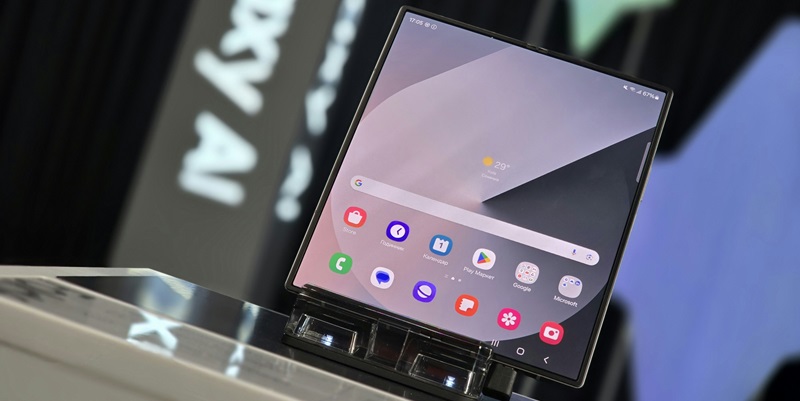Samsung’s ambitions to dominate the foldable smartphone market are facing significant hurdles as the anticipated release of the Galaxy Z Fold 6 Slim struggles to match the thin form factors of its Chinese competitors. Preliminary reports gave enthusiasts hope, suggesting that the new device would have a thickness of merely 7.7 mm when closed, placing it among the slimmest foldables. However, recent updates from The Elec indicate that the final product will be noticeably thicker, with a closed thickness of 11.5 mm. This is a stark contrast to leading models like Honor’s Magic V3, which boasts a closed thickness of 9.2 mm and an impressive 4.35 mm when unfolded. The disparity underscores the challenges Samsung encounters as it balances sleek design with essential durability.
Key industry insiders attribute Samsung’s inability to achieve a thinner profile to persistent reliability concerns. Crucially, the design must withstand rigorous durability tests, encompassing 200,000 folding cycles along with dust and water resistance. These constraints have anchored the Z Fold 6 Slim to a thicker build, ensuring it can endure the demands of everyday use while mitigating the risk of damage. Despite these limitations, the upcoming Galaxy Z Fold 6 Slim promises enhancements over its predecessor, featuring a larger 6.5-inch external screen and an 8-inch internal screen. These upgrades reflect Samsung’s efforts to enhance user experience even as it grapples with form factor challenges.
A Strategic Balancing Act
Samsung aims to lead the foldable smartphone market, but its Galaxy Z Fold 6 Slim faces notable challenges in matching the slim profiles of Chinese rivals. Early reports suggested a closed thickness of just 7.7 mm for the device, sparking excitement. However, updates from The Elec reveal the final product will be thicker at 11.5 mm, a stark difference from competitors like Honor’s Magic V3, which is 9.2 mm when closed and an impressive 4.35 mm when opened. This gap highlights Samsung’s struggle to balance sleek design with necessary durability.
Industry experts blame Samsung’s thicker design on ongoing reliability issues. The device must endure rigorous durability tests, including 200,000 folding cycles and resistance to dust and water. These requirements have forced the Z Fold 6 Slim into a heftier design to ensure it meets daily demands and minimizes damage risks. Despite these constraints, the Galaxy Z Fold 6 Slim will offer significant improvements over its predecessor, like a larger 6.5-inch external screen and an 8-inch internal screen, demonstrating Samsung’s commitment to enhancing user experience while contending with form factor challenges.

